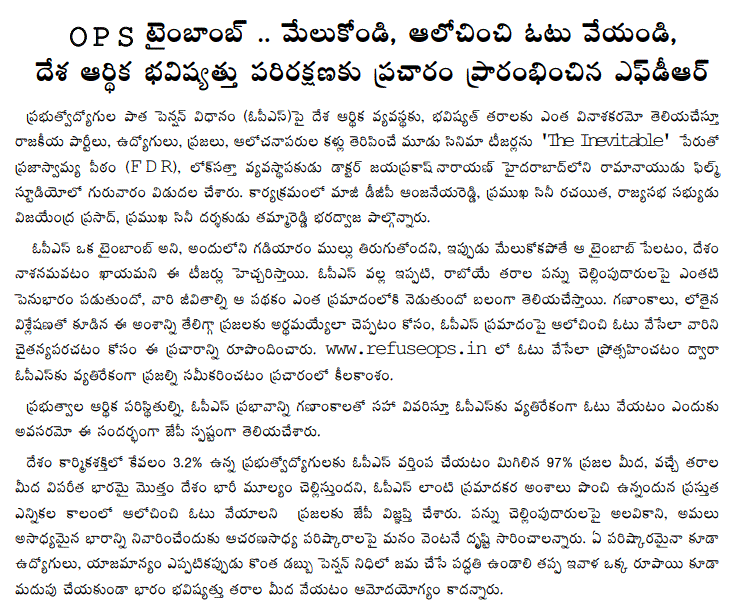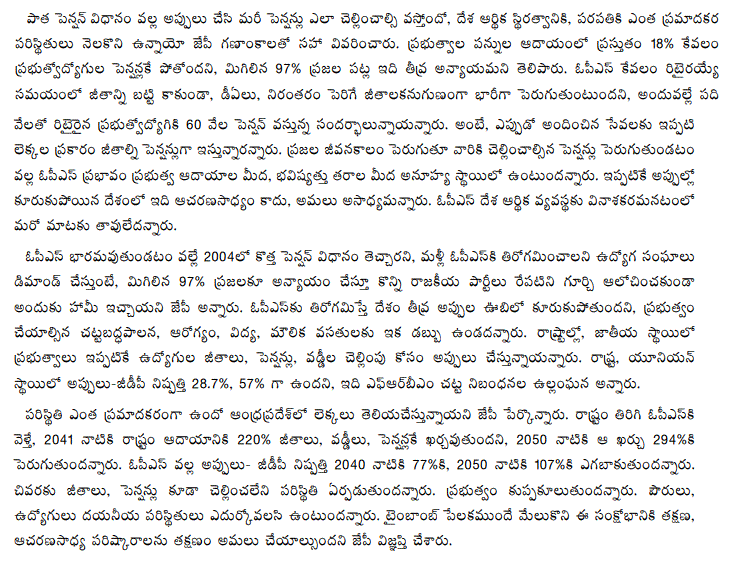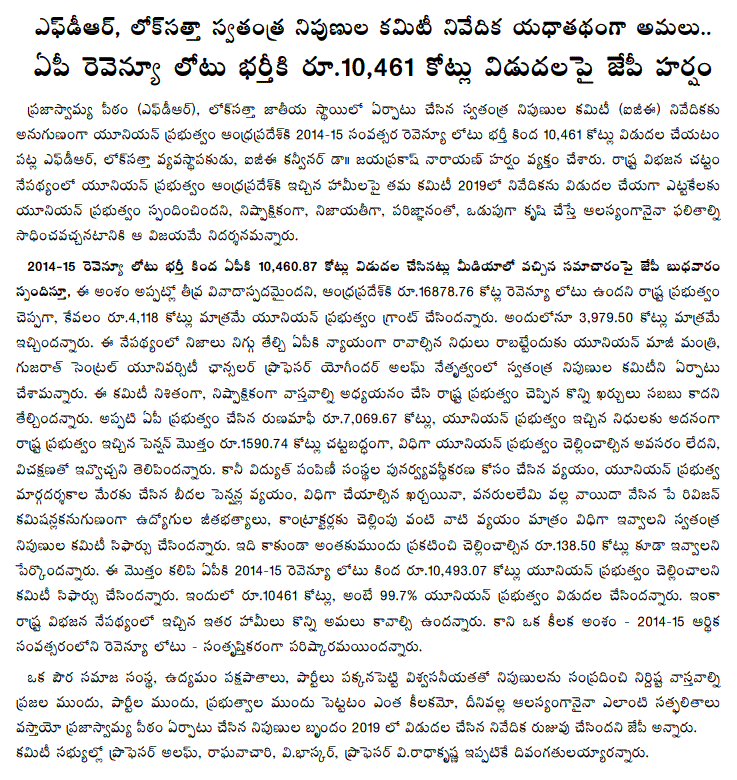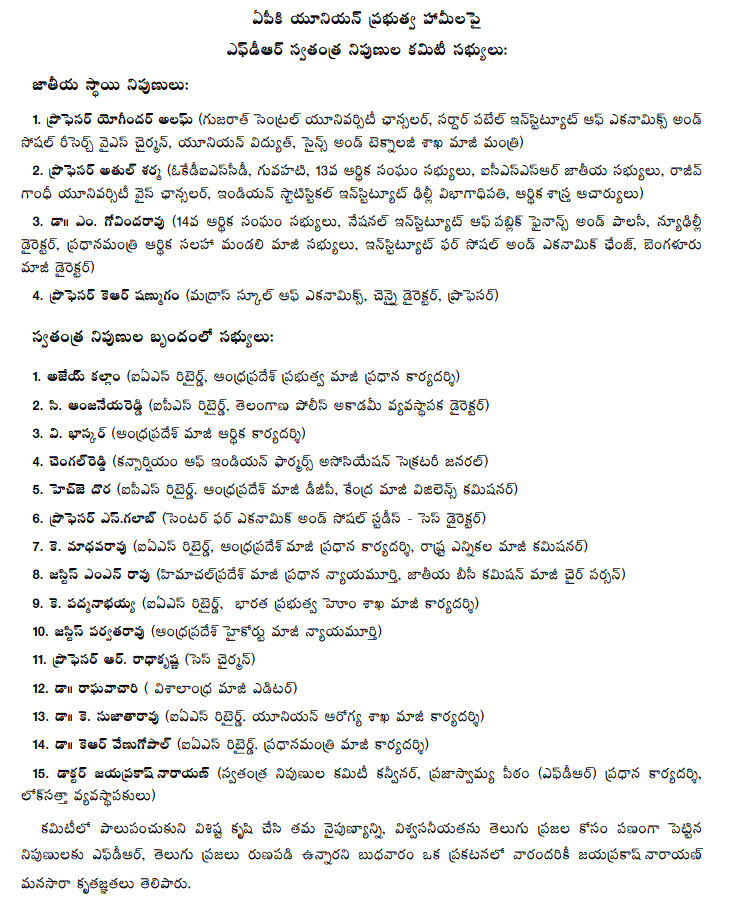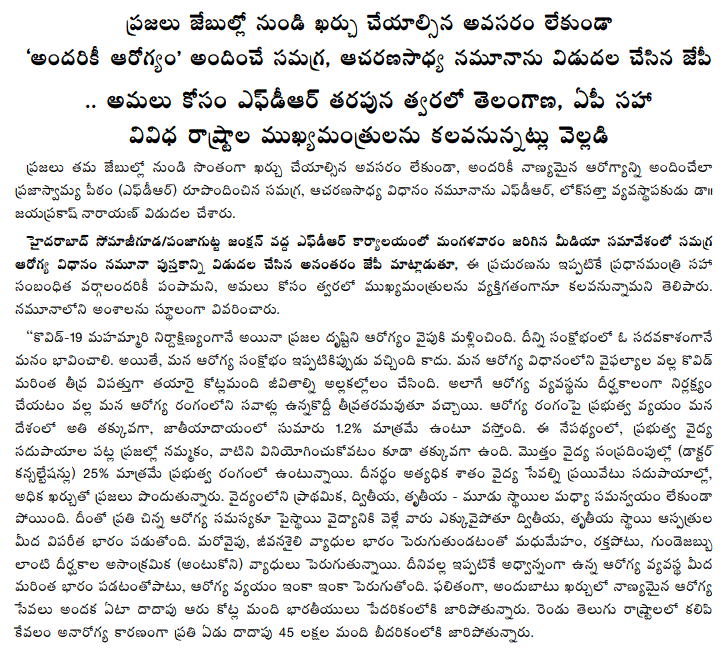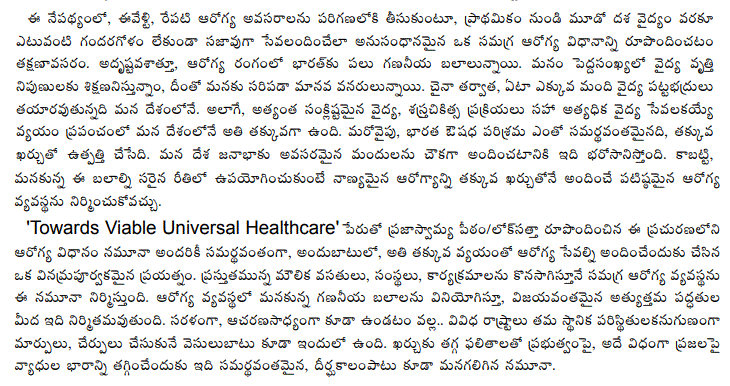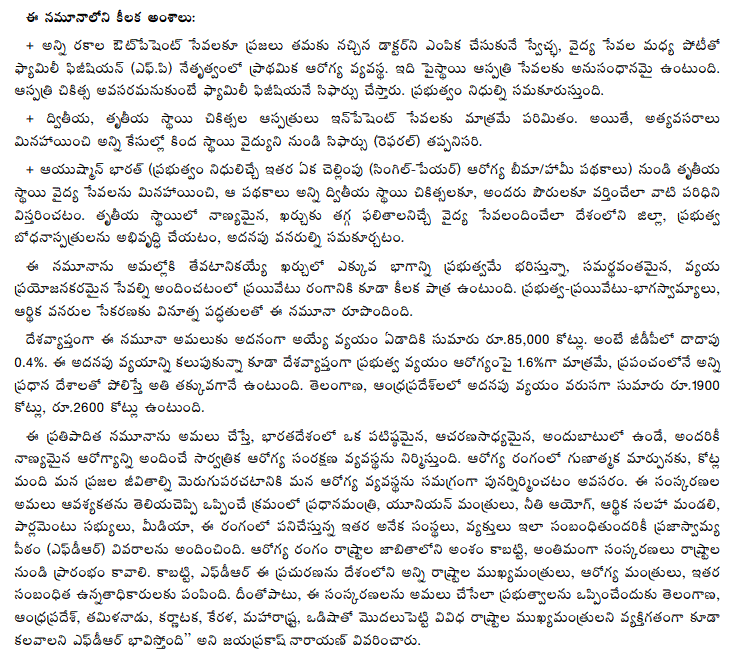"OPS is an unmitigated fiscal disaster" - FDR launches campaign to protect the future
Hyderabad - 16th November 2023: The Foundation for Democratic Reforms (FDR) - India's leading think-tank and research hub for vital governance reforms, orchestrated its campaign titled 'The Inevitable' at Ramanaidu Studios, Film Nagar, on Thursday. This initiative aims to raise awareness and sensitize the public about the repercussions of the Old Pension Scheme. Dr. Jayaprakash Narayan, former civil servant and MLA, currently serving as the General Secretary of FDR, led the session. The event was graced by esteemed dignitaries – Shri Anjaneya Reddy, Former DGP, Shri Vijayendra Prasad, Member of Rajya Sabha, and Shri Tammareddy Bharadwaja, noted Film Director.
During the launch, three short films were screened, depicting the inherent dangers of the Old Pension Scheme (OPS) to the nation's financial stability. These films emphasized the strain on the current and future taxpayers and the looming fiscal disaster affecting lives of future generations. Delving deeply into the subject, the campaign seeks to raise awareness about the detrimental impact of OPS on citizens, urging them to grasp the implications before the voting season. The primary goal of the campaign is to secure widespread support against OPS by encouraging people to vote on www.refuseops.in. During the session, Dr. Jayaprakash Narayan shed light on the current fiscal position of governments, the impact of OPS and the need to encourage citizens to cast their votes to oppose OPS.
Highlighting the need for awareness, Dr. Jayaprakash Narayana, General Secretary of Foundation for Democratic Reforms said, “We aspire for individuals to make informed decisions before casting their votes, especially in the context of issues like the Old Pension Scheme. It is crucial to align ourselves with practical solutions that prevent huge and unsustainable burden on taxpayers. This can be achieved by mandating contributions from both employees and employers during their active service.”
FDR expresses concern about the unfunded Old Pension Scheme, noting its challenges amid growing pension liabilities and looming threat to financial stability and credit of India. The OPS disproportionately takes away 18% of current tax revenue, unfairly favoring only 3.2% of the workforce while impacting the remaining 97%. Moreover, OPS benefits are not only adjusted for inflation but are also linked to periodic salary hikes for government employees. In essence, past services are rewarded based on today's salaries. This leads to an unsettling situation where pensions in many cases become several times the last drawn salary due to continual salary hikes. The impact of OPS on future generations and government resources is grave. As people live longer and the number of retired people in the total population increases, most of our tax money will inevitably be directed towards retirement benefits. This trajectory is simply unsustainable and burdensome for the country’s already stretched fiscal situation. OPS will lead to unmitigated fiscal disaster.
Transitioning back to OPS will plunge the country into a deep debt crisis. The financial strain would impede essential services like rule of law, healthcare, education, and infrastructure development. Current fiscal realities at both State and Union levels show that governments already are grappling with a huge burden of salaries, pensions, and interest payments, surpassing the revenue. Debt-to-GDP ratio at the State and Union levels stands at 28.7% and 57% respectively, breaching the limits set by the Fiscal Responsibility and Budget Management (FRBM) law.
Alarming projections in the State of Andhra Pradesh highlight an ominous picture: if the State reverts to OPS, the burden of salaries, interest payments and pensions will be about 220% of the State’s own revenues in 2041, and 294% in 2050. With OPS, the debt-to-GDP ratio will surge to 77% in 2040, and 107% in 2050. There will be no money in coffers, and creditors will not lend money. As a result, there will be no money to pay even salaries and pensions. Government will go bankrupt. All citizens and employees will suffer serious hardship. Addressing this impending crisis requires urgent and viable solutions before it spirals out of control.
About FDR
The Foundation for Democratic Reforms (FDR) is one of India's foremost think tanks and advocacy groups. Under the guidance of Dr. Jayaprakash Narayan, a distinguished former civil servant and MLA, FDR has contributed to shaping pivotal reforms across politics, governance, and public policy. Dedicated to making Indian democracy deliver better, FDR undertakes extensive research as well as several advocacy initiatives. FDR’s reform proposals are based on evidence, logic and global best practices, but suited to Indian conditions. Based on the prevailing circumstances, FDR pushes for reforms at the opportune time.
It was established in 1996 and is based in Hyderabad, Telangana.

